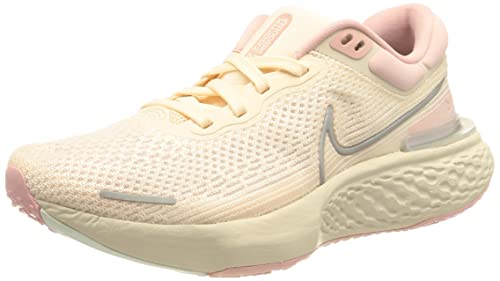
Rebounding on trampolines is a great way for you to keep active and improve your fitness. Rebound exercise has been linked to a higher bone density and lower fracture risk, according to research. It also provides a gentle weight-bearing workout, which protects the bones against osteoporosis. Rebounding can actually help strengthen every cell of the body.
FAQ
Do I gain weight from exercising?
Not at all. Exercise can actually help you maintain your weight. Exercise regularly will build muscles and increase metabolism. You'll burn more calories per day if you do. This means your body will not store as much fat.
Can I eat during my exercise?
Yes. Yes. Watermelon, grapes (or carrots or celery), watermelon, grapes, apples, bananas or apples are all low-calorie snacks. These foods are high in nutrients, which can improve your performance during training.
How does caffeine affect my sleeping?
Caffeine has a significant impact on how fast you fall asleep and how deep you sleep. Caffeine can cause drowsiness that makes falling asleep much easier. The downside is that caffeine keeps you awake longer making it harder for you to fall asleep again. Drinking coffee or energy drinks before bedtime is a bad idea.
Why is it so important to get enough sleep?
A healthy lifestyle requires sleep. Sleep is essential for your body to recover from daily stressors and repair itself. Your ability to function optimally during the day is dependent on how much sleep you get each night.
What should I do if I'm working out?
You shouldn't consume alcohol while working out because it has calories. However, moderate consumption of alcohol (one drink per day) may help improve endurance during workouts. It can also help reduce fatigue and muscle pains caused by intense exercise.
What Does Exercise Do for Your Body?
Exercise helps you lose weight and build muscle mass. It also increases energy levels, decreases stress, and improves sleep quality. The benefits of exercise include improved moods, better self-esteem, increased productivity, and reduced risk of heart disease.
How can exercise and nutrition help you live a healthier life?
Exercise helps you to stay healthy, lose weight, gain muscle mass, and reduce stress. Nutrition is critical for energy and mood. You can live longer if you eat less meat and moderate alcohol intake, quit smoking, and engage in regular physical activity.
Statistics
- Globally, 81% of adolescents aged 11-17 years were insufficiently physically active in 2016. (who.int)
- In high-income countries, 26% of men and 35% of women were insufficiently physically active, as compared to 12% of men and 24% of women in low-income countries. (who.int)
- Physical activity confers the following maternal and fetal health benefits: a decreased risk of pre-eclampsia, gestational hypertension, gestational diabetes (for example, 30% reduction in risk) (who.int)
- One study showed that adults who watch more than 4 hours of television daily had an 80% higher risk of death from cardiovascular disease. (heart.org)
External Links
How To
How to burn belly fat faster
When trying to lose weight, belly fat is often viewed as a problem. If you look at it, belly fat is actually a positive thing. It's the amount of fat stored around your stomach that protects your organs from getting damaged. Let's now see how to quickly lose belly fat.
Stress and inactivity are two of the major factors that cause us to store body fat. Because of its stimulation of the production hormone cortisol, stress can make us feel hungry continuously. Cortisol can increase insulin levels in the blood. The insulin stores the excess calories as fat. A lack of sleep leads to adrenaline being released into the system which causes an increased appetite. These extra calories are broken down through exercise.
There are many methods to lose belly fat. You can choose to try any of these options, depending on your budget. These tips will help you quickly get rid of belly fat.
-
Try to eat less food. Eat smaller meals throughout the day rather than eating three big ones. You will eat less calories in general.
-
Make sure you drink plenty of water. Water flushes out toxins from your body and keeps you hydrated. Drinking water prior to every meal will ensure that you are satisfied for longer periods of time and won't eat too much.
-
Avoid snack foods that are unhealthy. If you're looking for quick fixes, snack foods like chips, cookies, candies, etc. These tempting snacks might look appealing. Avoid these unhealthy treats. They are full of empty calories, too much sugar, and can be very fattening. Instead, opt for healthy alternatives such as fruits, vegetables and whole grains.
-
Three times per week, strength training is recommended. Strength training builds muscle mass which burns more calories even while resting. It strengthens bones and muscles, ligaments, muscles, tendons, heart, lungs, as well as joints.
-
Regularly walk or stretch. Stretching improves flexibility and mobility which can reduce back pain. Walking is great for burning calories, especially brisk walking for 30 minutes.
-
Reduce alcohol intake. Avoid alcohol.
-
Reduce your weight gradually. Your current weight is the first step to losing weight. Then calculate your ideal weight by adding 5% to 10% of your total body weight. Once you have calculated your target body weight, you can begin to cut calories by 500-1000 calories every day until your goal is reached.
-
Avoid processed foods. These foods contain high levels of sugar, salt, and preservatives. Even though they can be very convenient, these foods lack sufficient nutrients to support your health.
-
Don't skip breakfast! Eating breakfast improves concentration, memory, and energy level. Include protein (like eggs) and fiber, like oats, in your breakfast.
-
Have regular bowel movements. Gas and bloating can result from irregular bowel movements. Increase your fiber intake and drink lots of water.